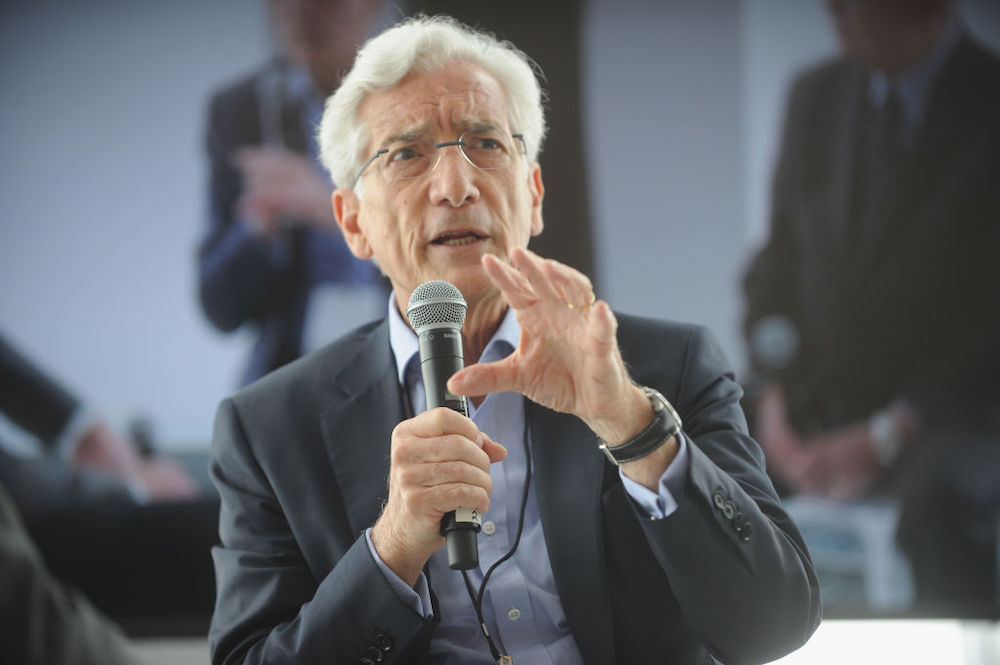- Sir Ronald Cohen says in his new book that measurement separates impact investing from ESG
- His long career pioneering the impact sector underscores his beliefs
- Measuring impact will be a key differentiating factor as companies consider whether embracing ESG is enough
As unprecedented as the coronavirus pandemic appears to be, Sir Ronald Cohen sees a clear parallel: the stock market crash of 1929, which resulted in financial sector reforms — including the establishment of the SEC — that seemed controversial at the time and are now widely accepted norms. The pandemic has amplified the push toward stakeholder capitalism, something that Sir Ronald believes could be similarly brought into the mainstream.
“In 1929, everyone had their own accounting standards, and investors invested in companies without understanding the profit they really made,” he said in an interview with Karma from his home in Tel Aviv. “Today, they invest in companies with ESG in mind and without any real idea of the impact they create.”
This idea forms the baseline for impact investing, which makes sense: Sir Ronald Cohen is a longtime fixture in the impact world with an origin story that underscores his ability to build and rebuild from scratch.
Born in Egypt, he and his family became refugees when they fled to the U.K. in 1957 to escape the anti-Semitism growing under Egyptian president Gamal Abdel Nasser. He went on to attend Oxford and Harvard and become the “father of British venture capital,” for which he was knighted in 2001.
Since then, he has turned his attention to impact investing — not just as an investor, but as an enthusiastic builder of the sector’s structures and scaffolding. The list of organizations he founded or chairs includes the Global Steering Group for Impact Investing (GSG), which grew out of his leadership on the 2014 G8 Task Force on Social Investment. He also created two financial tools used by impact investors and their government partners: the social impact bond, a way of de-risking targeted social program funding for governments, and “outcome funds,” which mobilize and pool capital for programs proven to be effective.
His new book Impact: Reshaping Capitalism to Drive Real Change speaks to this commitment to build. The book’s precursor, a 2018 manifesto called On Impact: A Guide to the Impact Revolution, was largely theoretical. (I would know: in the interest of full disclosure, I was GSG’s communications director until early 2019.) The manifesto envisioned a future where “impact” had a universal definition and clear paths for measurement.
Impact, his latest book, makes the pivot from theory to practice. “Investors are, justifiably, concerned about ‘impact washing’, where existing activities are simply rebranded as impact, without there being any change in the impact that is delivered,” he writes in Impact. The book praises the Business Roundtable’s 2019 statement on stakeholder capitalism, though Sir Ronald’s preferred term is “impact capitalism.” In our conversation, he reiterated the thesis of the book: that impact investing’s commitment to measurement standards — and to normalizing those standards through laws and regulations — is what would distinguish it from the broadly-defined principles of ESG investing.
“This [impact investing] isn’t only something that shouldn’t happen or that can happen but it’s actually happening,” he said. The book is indeed brimming with examples of how impact investments have risen to make up $700 billion of the $30 trillion in global ESG investments.
Last year, Sir Ronald built yet another bit of scaffolding: along with a team of experts, including Dr. Clara Barby of the Impact Measurement Project, he launched the Impact-Weighted Accounts Initiative at Harvard Business School to start using existing data to create standards. Their work began with environmental data, which is generally more straightforward and easier to collect and assess than data on social change indicators like diversity.
The coronavirus pandemic has shifted focus from climate change to social issues; here, Sir Ronald sees the scaffolding he’s built clearing a path out.
“COVID is a big accelerator that pushes us to greater scale,” he said, citing the potential use of social impact bonds to fund solutions in the slums where the virus can fester, and outcome funds to help educate and reskill people. It’s tempting to view these solutions as oversimplified, but the message from both him and Impact is about setting the parameters of the debate. His next build: impact investing as a way to finance wider-scale COVID-19 testing.
“The urgency of the situation is at its highest, and we’re anxious to do things at scale,” he said.




















